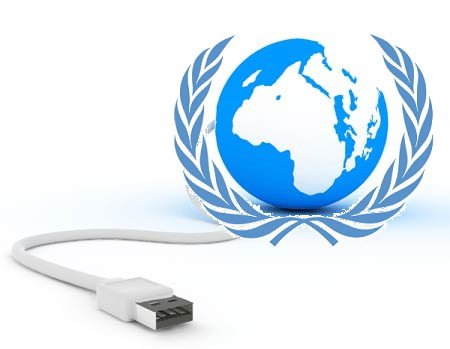 NEWS
NEWS
 NEWS
NEWS
 NEWS
NEWS
![]() Serious divisions have emerged at a UN conference on international telecommunications, with countries including Russia, Saudi Arabia and the UAE insisting that each of the 193 nations present should have an equal say in how the internet is ran, and demanding this be stated in a treaty.
Serious divisions have emerged at a UN conference on international telecommunications, with countries including Russia, Saudi Arabia and the UAE insisting that each of the 193 nations present should have an equal say in how the internet is ran, and demanding this be stated in a treaty.
On the other side of the fence sits the USA, supported by dozens of European countries, which insists that internet control should remain out of the UN’s hands, citing fears of censorship if other countries are allowed more of a say.
SiliconANGLE previously reported on the tensions between countries ahead of the World Conference on International Telecommunications — tensions that were shoved into the limelight by Google and its campaign to keep the internet “Free and Open”.
Now, it would appear that some of the fears cited by western nations last week have been confirmed. The whistleblowing site WCITLeaks has just published a document containing a controversial proposal from Russia, which says that governance of the internet should be the shared responsibility of “governments, the private sector and civil society”, adding that It member nations should have equal rights to manage such things as internet naming, numbering, addressing and identification resources”.
According to the BBC, such a move would be a major shift away from how things are run today. Currently, the US Department of Commerce has effective control of the net through the Internet Assigned Numbers Authority, or Iana, which it runs. Iana, for its part, recently awarded a new contract for Icann to regulate the web’s address system.
Some might argue this is inherently wrong — after all, it’s hardly fair that control of the net resides in the hands of just one nation, but the US insists it’s for the good of everyone that the internet remains in its hands.
Currently, its development is largely controlled by stakeholder organizations that funded the internet precursor Arpanet, on which much of the net’s technical core is derived from. It points out that under the current system, these stakeholders can use their technical know-how to make “rapid-fire decisions” with regard to the internet’s continued development — something that could be threatened if the ITU or some other UN body gained control over its technical foundations.
With the intense secrecy surrounding the Dubai meeting, it’s hard to say whether or not the Russian proposal will be accepted, but it seems clear that Moscow has attracted some support, with nations including Algeria, Saudi Arabia, Sudan and the UAE all believed to have collaborated on the document.
The BBC says that Egypt’s name was also included in the proposal, although that country later denied that it supported Russia’s proposals.
THANK YOU